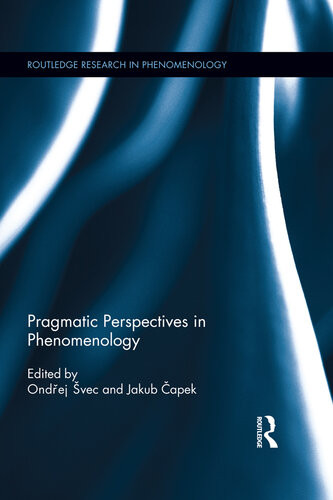

Most ebook files are in PDF format, so you can easily read them using various software such as Foxit Reader or directly on the Google Chrome browser.
Some ebook files are released by publishers in other formats such as .awz, .mobi, .epub, .fb2, etc. You may need to install specific software to read these formats on mobile/PC, such as Calibre.
Please read the tutorial at this link: https://ebookbell.com/faq
We offer FREE conversion to the popular formats you request; however, this may take some time. Therefore, right after payment, please email us, and we will try to provide the service as quickly as possible.
For some exceptional file formats or broken links (if any), please refrain from opening any disputes. Instead, email us first, and we will try to assist within a maximum of 6 hours.
EbookBell Team

4.1
60 reviewsPragmatic Perspectives in Phenomenology offers a complex analysis of the pragmatic theses that are present in the works of leading phenomenological authors, including not only Heidegger and Merleau-Ponty, as it is often the case within Hubert Dreyfus’ tradition, but also Husserl, Levinas, Scheler, and Patocka. Starting from a critical reassessment of existing pragmatic readings which draw especially on Heidegger’s account of Being-in-the-world, the volume’s chapters explore the following themes as possible justifications for speaking about the pragmatic turn in phenomenology: the primacy of the practical over theoretical understanding, criticism of the representationalist account of perception and consciousness, and the analysis of language and truth within the context of social and cultural practices. Having thus analyzed the pragmatic readings of key phenomenological concepts, the book situates these readings in a larger historical and thematic context and introduces themes that until now have been overlooked in debates, including freedom, alterity, transcendence, normativity, distance, and self-knowledge. This volume seeks to refresh the debate about the phenomenological legacy and its relevance for contemporary thought by enlarging the thematic scope of pragmatic motives in phenomenology in new and revealing ways. It will be of interest to advanced students and scholars of phenomenology who are interested in moving beyond the analytic-continental divide to explore the relationship between practice and theory.